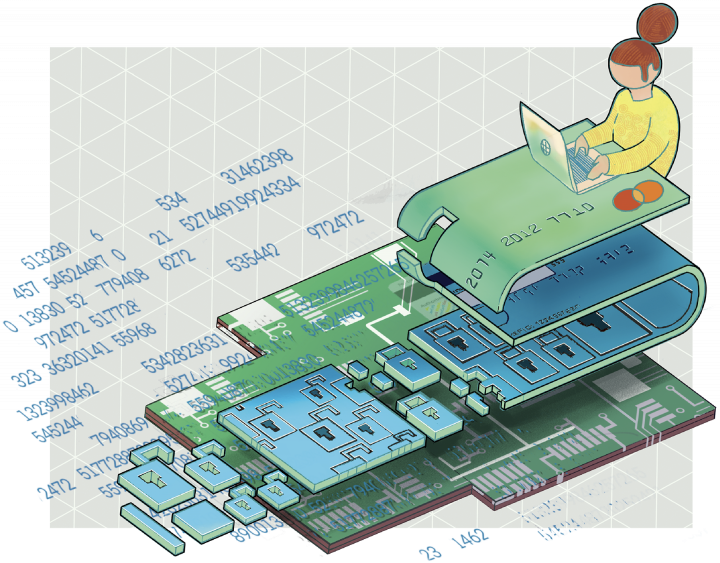Capital One Supports Machine Learning Research
When the University of Maryland Center for Machine Learning launched in 2019 to unify and enhance the many machine learning activities underway on campus, financial and technology leader Capital One committed to being the center’s inaugural partner.
“We were proud to be a part of launching the University of Maryland Center for Machine Learning and proud to continue our partnership with the university in this field,” said Paul Hurlocker, Vice President, Center for Machine Learning, Capital One. “At Capital One, we've invested in forward-leaning technologies like machine learning that can provide our customers greater protection, security, confidence and control of their finances. We look forward to continued breakthrough work with the University of Maryland in the years to come."
Capital One is also a member of the department’s Corporate Partners in Computing program and supports its Iribe Initiative for Inclusion and Diversity in Computing. In the Center for Machine Learning, the company funds research projects that align with the company’s need to stay on the cutting edge in areas like fraud detection and enhancing the customer experience with more personalized, real-time features.
For one such project, Soheil Feizi, an assistant professor of computer science with a joint appointment in the University of Maryland Institute for Advanced Computer Studies (UMIACS), and his collaborators at Capital One are developing a system that can learn to identify bank fraud without relying on a large number of examples.
One of the most common approaches to machine learning involves presenting a computer with lots of labeled examples of a specific thing and letting the computer learn to identify that thing. For example, a computer learns to recognize human faces by analyzing thousands of labeled images of human and non-human faces and finding the important features needed to distinguish a person from, say, a snowman or a smiley emoji.
The challenge for Feizi and his collaborators is that there are too few examples of fraudulent transactions to provide a reliable training dataset. So, rather than training the system to identify fraud, Feizi is developing a method that asks the machine to identify "normal." Then, the system can flag anything that doesn’t fit in. This approach, called "unsupervised learning," lets the machine learn how to find anomalies without being told what anomalies look like.
"The unsupervised model aims to characterize the underlying distribution of the normal data. Learning this distribution aids us in flagging anomalies," explained Feizi, who is also a core faculty member of the Center for Machine Learning.
Feizi’s method has proven effective on publicly available data. Now, he is working with Capital One to incorporate the company’s proprietary data and eventually deploy the method live on Capital One’s system to prevent fraudulent transactions.
“The close partnership between Professor Feizi's team and our applied researchers ensures that the research breakthroughs made at the University of Maryland are quickly adopted by Capital One,” said Bayan Bruss, Director, Applied Research Lead, Center for Machine Learning, Capital One. “At the same time, we are able to provide input on where there is still room for improvement on real world datasets and problems, thereby opening up new lines of inquiry for university researchers."
Working with Capital One has been convenient for Feizi and other faculty members in the Center for Machine Learning, which is housed in UMD’s new Brendan Iribe Center for Computer Science and Engineering. Across the street from the Brendan Iribe Center is Capital One’s 7,500-square-foot Tech Incubator, which opened in 2018.
The incubator also provides computer science students with internship opportunities that allow them to apply what they are learning in the classroom—in topics like data science and machine learning—to real-world problems and experiences.
In addition to Feizi, core faculty members in the Center for Machine Learning include Maria Cameron, John Dickerson, Ramani Duraiswami, Tom Goldstein, Mohammad Hajiaghayi, Furong Huang, David Jacobs, Dinesh Manocha, Abhinav Shrivistava, Aravind Srinivasan and Pratap Tokekar. Jacobs serves as director of the center, which receives its administrative and technical support from UMIACS.
“We see the center as a portal for machine learning at Maryland,” Jacobs said. “By reaching out to other faculty and increasing our external relationships, we’ll continue to build the strong intellectual and computational infrastructure needed to address scientific and societal challenges best solved by machine learning.”
###
Written by CMNS and UMIACS staff writers.
The Department welcomes comments, suggestions and corrections. Send email to editor [-at-] cs [dot] umd [dot] edu.
